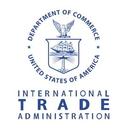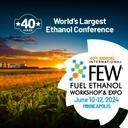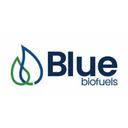Haffner Energy has announced its proposed sustainable aviation fuel (SAF) project under development at Paris-Vatry airport will be developed with leading alcohol-to-jet (ATF) technology provider LanzaJet.
The U.S. Department of Energy Bioenergy Technologies Office has released a Summary Report from a September 2023 Request for Information (RFI) on building supply chains to meet Sustainable Aviation Fuel (SAF) Grand Challenge goals.
The International Air Transport Association announced that it will establish the SAF Registry to accelerate the uptake of sustainable aviation fuels (SAF) by authoritatively accounting and reporting emissions reductions from SAF.
U.S. biofuels operable production capacity expanded slightly in March, according to data released by the U.S. Energy Information Administration on May 31. Feedstock consumption was up when compared to both the previous month and March 2023.
In a world first, University of Sydney researchers have developed a chemical process using plasma that could create sustainable jet fuel from methane gas emitted from landfills, potentially creating a low-carbon aviation industry.
USDA publishes request for information to support next steps in implementing the Growing Climate Solutions Act
The USDA is seeking information from the public on protocols that may be considered for inclusion in a new Greenhouse Gas Technical Assistance Provider and Third-Party Verifier Program, the main program of the Growing Climate Solutions Act.
With the power to simultaneously fuel our airplanes, recycle carbon dioxide, provide nutrition for animals and humans, and create jobs for millions of Americans, algae matters to the U.S. clean energy economy.
India-based GPS Renewables has partnered with Dubai-based SAF One to develop SAF projects in India. The two companies plan to develop a 20-30 million liter per year facility that will convert cellulosic waste feedstock into SAF.
The U.S. Department of Commerce’s International Trade Administration on May 28 announced the renewal of its Renewable Energy and Energy Efficiency Advisory Committee. The agency is also seeking nominations for committee membership.
Vietnam Airlines has operated its first flight using Neste MY Sustainable Aviation Fuel. A Vietnam Airlines Airbus A321 was refueled with blended SAF at Changi Airport in Singapore for its return flight to Hanoi, Vietnam on May 27.
Ethanol Producer Magazine announced this week the six companies selected to pitch to a group of investors at Pitch Day at the 2024 International Fuel Ethanol Workshop & Expo, taking place June 10-12 in Minneapolis, Minnesota.
The House Committee on Agriculture on May 24 completed markup of its version of the 2024 Farm Bill and passed the proposed legislation by a 33-21 vote. Among the provisions included in the bill are those that support the SAF industry.
Avfuel Corp., one of business aviation’s leading suppliers of sustainable aviation fuel (SAF), marks a new milestone in its SAF supply journey, expanding its supply globally to three French airports.
Neste has further expanded its capability to supply sustainable aviation fuel to customers in Europe in cooperation with VTTI, a global leader in energy storage and developer of energy infrastructure.
Rep. Randy Feenstra, R-Iowa, and Sens. Chuck Grassley, R-Iowa, and Joni Ernst, R-Iowa, on May 22 sent a letter to President Joe Biden and U.S. EPA Administrator Michael Regan urging the EPA amend its Renewable Fuel Standard blending requirements.
Embraer, a global leader in aerospace innovation, on May 23 announced a landmark agreement with Avfuel to increase its uptake of Neste MY Sustainable Aviation Fuel (SAF) at Melbourne Orlando International Airport (KMLB) to one load per week.
Vestas has announced its technicians and jack-up vessel crew will use helicopters partly powered by SAF to transport themselves to and from the Baltic Eagle wind farm during the construction phase of 50 offshore wind turbines.
Blue Biofuels Inc. is pleased to announce that it has received a Notice of Allowance in Canada for the primary patent on its CTS process, #3,121,695 “System to Convert Cellulosic Materials into Sugar and Method of Using the Same.”
Sustainability solutions provider Azzera has added an industry-first sustainable aviation fuel (SAF) management module to its CELESTE B2B Software-as-a-Service (SaaS) platform.
The House Committee on Agriculture on May 17 released a discussion draft of its version of the 2024 Farm Bill, formally titled the “Farm, Food, and National Security Act of 2024.” The committee is scheduled begin markup of the bill on May 23.
Emerging Fuels Technology Inc. and CAPHENIA GmbH have announced a memorandum of understanding (MOU) to leverage each other's technology to produce efficient sustainable aviation fuel (SAF) at scale.
The Australian government on May 14 released its $22.7 billion 2024-2025 budget. The plan, in part, includes provisions that aim to support the commercialization of net-zero technologies, such as SAF and renewable hydrogen.
The Chemical Catalysis for Bioenergy Consortium, a consortium of the U.S. DOE’s Bioenergy Technologies Office, has launched an effort that aims to gather community input on the development of new biomass processing facilities.
LanzaJet on May 16 announced a $20 million investment from Groupe ADP, the world leader in airport design and operations. The investment enables LanzaJet to continue building its capability and capacity to deploy its SAF process technology globally.
More than 2.06 billion RINs were generated under the Renewable Fuel Standard in April, up from 1.84 billion generated during the same month of last year, according to data released by the U.S. EPA on May 16.
Europe-based airline Ryanair has extended its partnership with Trinity College Dublin by making an additional €2.5 million donation (€4 million total) to fund the Ryanair Sustainable Aviation Research Centre.
A group of 25 trade organizations on May 15 sent a letter to Treasury Secretary Janet Yellen urging the agency to release guidance for the 45Z clean fuels production tax credit along with any necessary updated GREET models.
Emirates has taken delivery of SAF from Shell Aviation at London Heathrow Airport. Over 3,000 metric tons of neat SAF, blended with conventional jet fuel, will be supplied into the fueling infrastructure network of the airport.
The U.S. Department of Commerce’s International Trade Administration has announced its Renewable Energy and Energy Efficiency Advisory Committee will hold a meeting May 22 in Washington, D.C.
Signature Aviation, the world’s largest network of private aviation terminals, announced a new milestone in sustainability by bringing a 100% supply of blended Neste MY Sustainable Aviation Fuel to its Los Angeles International Airport location.
Advertisement





























